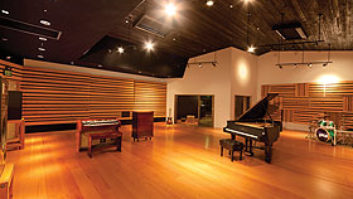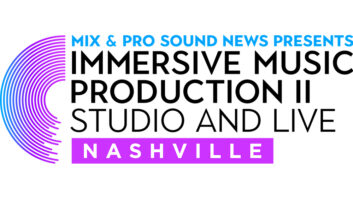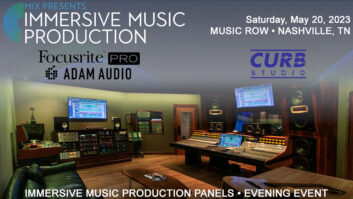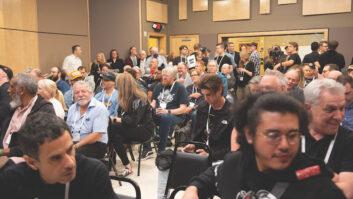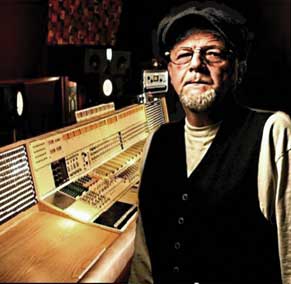
Producer R.S. Field in House of David Studios, where he co-produced Justin Townes Earle’s latest album, Midnight at the Movies.
On his first night in Nashville, R.S. Field headed for the women’s dormitory at Vanderbilt University. There, coeds wiggled around in a little basement bar where the only available drink was sangria, sold in open-ended, fluted bottles.
“This was 1982, and the band that night was Tim Krekel & The Sluggers,” says Field, recalling his shock at seeing a roots-rock band of the highest order there in the heart of Twangtown. “The people I was with couldn’t believe somebody in Nashville was playing something that we liked that was rock ‘n’ roll. We knew about Rodney Crowell and Rosanne Cash, but that was a kind of hybrid country. This was like seeing Dave Edmunds and a southerner rolled into one.”
Back then, Krekel was a kingpin of a burgeoning Nashville scene that was experiencing its first flushes with national success in the form of Jason & The Scorchers. Field and his fellow Mississippi-bred pal Webb Wilder were soon a major part of that scene, and, for the past quarter-century or so, Field has been Music City’s most significant and intriguing roots-rock producer. He has helmed much-loved albums by Wilder, Billy Joe Shaver, Sonny Landreth, Alison Moorer, John Mayall and numerous others.
“If I have a secret, it’s to let personality come to the fore, even if it’s skewed,” he says. “That, and that gear is like furniture: It’s better to have a few nice pieces than a whole bunch of junk. Early on, I’d try to figure out why the records I produced didn’t sound ‘famous’ to me. That’s how I found out about signal path and gear and all that.”
As for signal path, Field prefers the quickest, cleanest path. He eschews what he calls “trans-Atlantic cabling,” and he’s wary of patchbays. On the gear front, he likes API boards and often works on the APIs at House of David and Omnisound. He’ll also pipe in good words for Fairchild and Universal Audio compressors, and Trident A Range mic pre’s. And he prefers a blend of analog and digital given access to his favored Apogee or RADAR Nyquist converters.
“I learned what I didn’t like about digital real fast,” Field says. “But then I put some effort into learning about clocks and converters, and I believe now that you can make great records with the new gear. It’s all based on the same stuff, like headroom and dynamics.”
Field has also made a mark as a songwriter, penning “Powerful Stuff” for the Fabulous Thunderbirds and numerous Wilder songs, including set-list staples “Tough It Out,” “Human Cannonball,” “How Long Can She Last (Going That Fast)” and “Hittin’ Where It Hurts.” His songs and his productions trade on quirk, surprise and the kind of groove that can’t be quantized.
“I’m always trying to find the drum sound that’s in my head,” he says. “The ’80s made it where nobody could have drums that sounded like drums, and it was a lot of work to figure out why they didn’t sound right. Like, ‘Why are we gating it, again?’ I learned to hate hi-hats for a while. Sometimes the best thing is to fire and forget. People get to be beat detectives, so analytical about it all, but when I go back to the drummers I love, it’s real drummers like Earl Palmer and Roger Hawkins and Ringo. Who now would let Keith Moon play like he did? I was listening to ‘All Along the Watchtower’ with Hendrix, and there’s no pocket: It’s like a bag of beach balls rolling down the steps. And it’s lovely. Not like a jam band, either. It’s this great freedom to choogle.”
This year, Field won praise for his work as producer of Justin Townes Earle’s Midnight at the Movies, which earned a Best Album nomination at the Americana Music Awards. He’s also producing Moorer’s next album, and he’s been thinking about finding a way to educate aspiring producers.
“I’m interested in trying to teach the monkey business,” he says. “I don’t know why anybody would want their kid to major in it, but that’s my new goal. I think there’s a lot of folly in these super-entrenched programs that are teaching the business model that is gone with the wind. I think there’s more to teaching how to listen, what to listen for and how to try to have something to say. Content is the answer to every question. Some of these kids are leaving programs without thinking about content. They need Jimmy Reed to rise from the grave and throw up on them, or something.”
To reach Peter Cooper; e-mail
[email protected]

